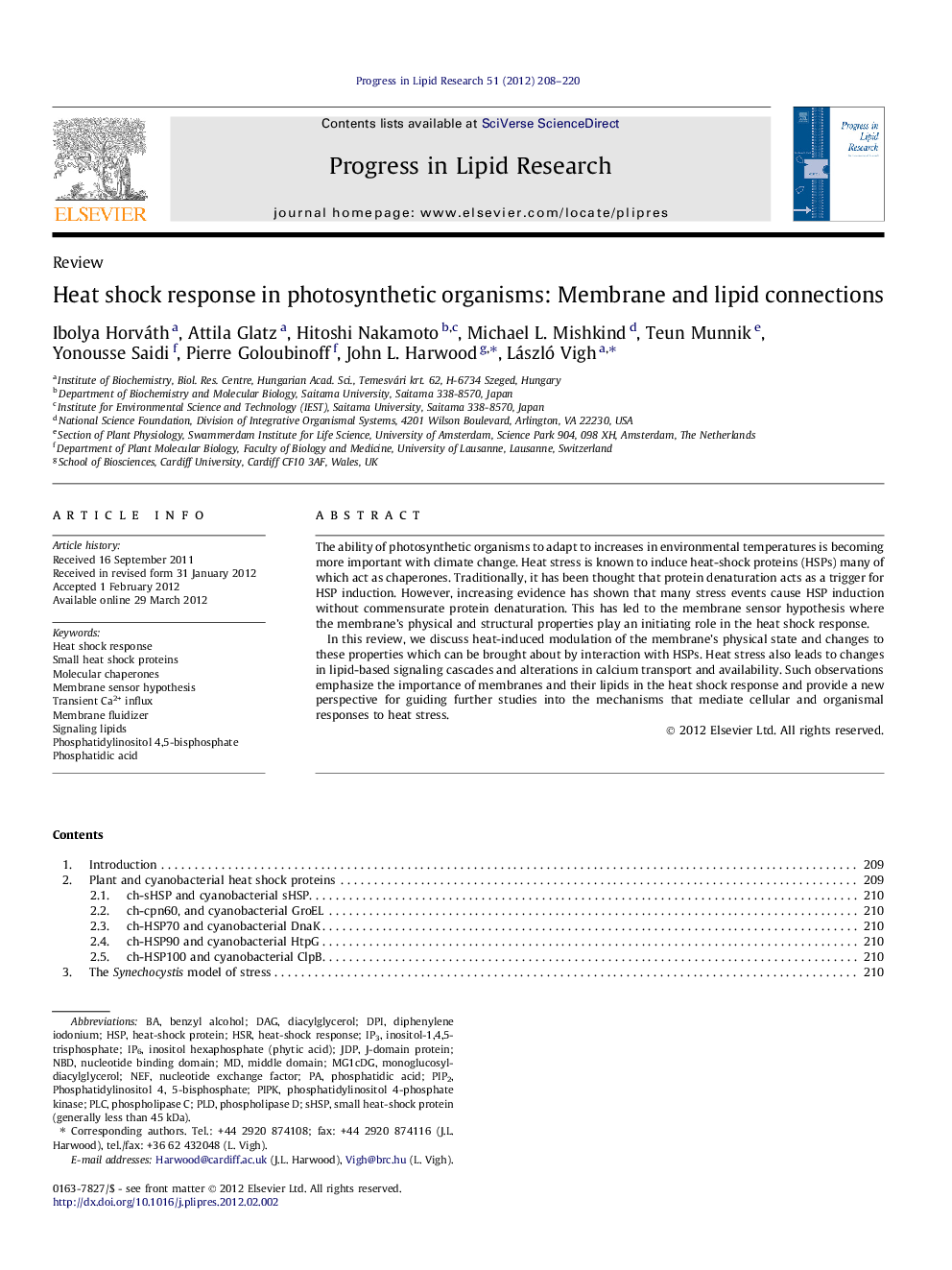| Article ID | Journal | Published Year | Pages | File Type |
|---|---|---|---|---|
| 2019128 | Progress in Lipid Research | 2012 | 13 Pages |
The ability of photosynthetic organisms to adapt to increases in environmental temperatures is becoming more important with climate change. Heat stress is known to induce heat-shock proteins (HSPs) many of which act as chaperones. Traditionally, it has been thought that protein denaturation acts as a trigger for HSP induction. However, increasing evidence has shown that many stress events cause HSP induction without commensurate protein denaturation. This has led to the membrane sensor hypothesis where the membrane’s physical and structural properties play an initiating role in the heat shock response.In this review, we discuss heat-induced modulation of the membrane’s physical state and changes to these properties which can be brought about by interaction with HSPs. Heat stress also leads to changes in lipid-based signaling cascades and alterations in calcium transport and availability. Such observations emphasize the importance of membranes and their lipids in the heat shock response and provide a new perspective for guiding further studies into the mechanisms that mediate cellular and organismal responses to heat stress.
